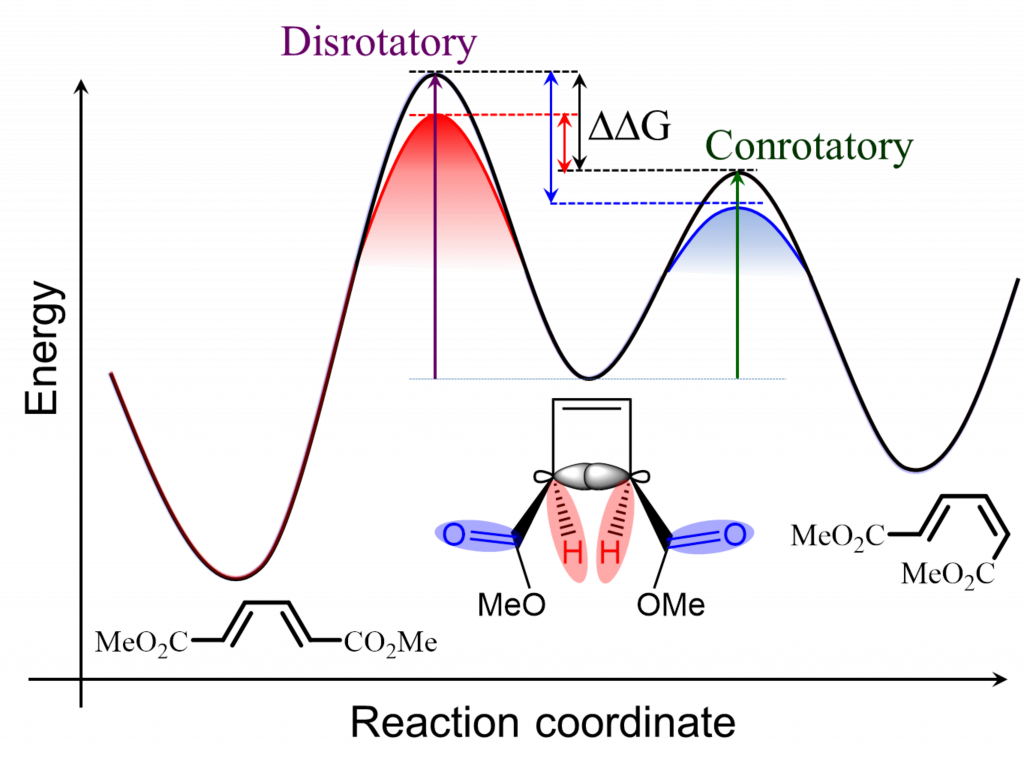Vibrational strong coupling (VSC) has recently been shown to change the rate and chemoselectivity of ground state chemical reactions via the formation of light‐matter hybrid polaritonic states.Our recent observation that vibrational mode symmetry has a large influence on charge transfer reactions under VSC suggested that symmetry considerations could be used to control other types of chemical selectivity. We thus explored the stereoselectivity of the thermal electrocyclic ring‐opening of a cyclobutene derivative, a reaction which follows the Woodward‐Hoffmann rules, under VSC. The direction of the change in stereoselectivity depends on the vibrational mode that is coupled, as do changes in rate and reaction thermodynamics. All this is summarized in a new publication, resulting from a collaboration with Joseph Moran‘s group, that just appeared in Angewandte Chemie in Open Access, but also in our publication page.
Laboratoire des nanostructures
Prof. Thomas W. Ebbesen

